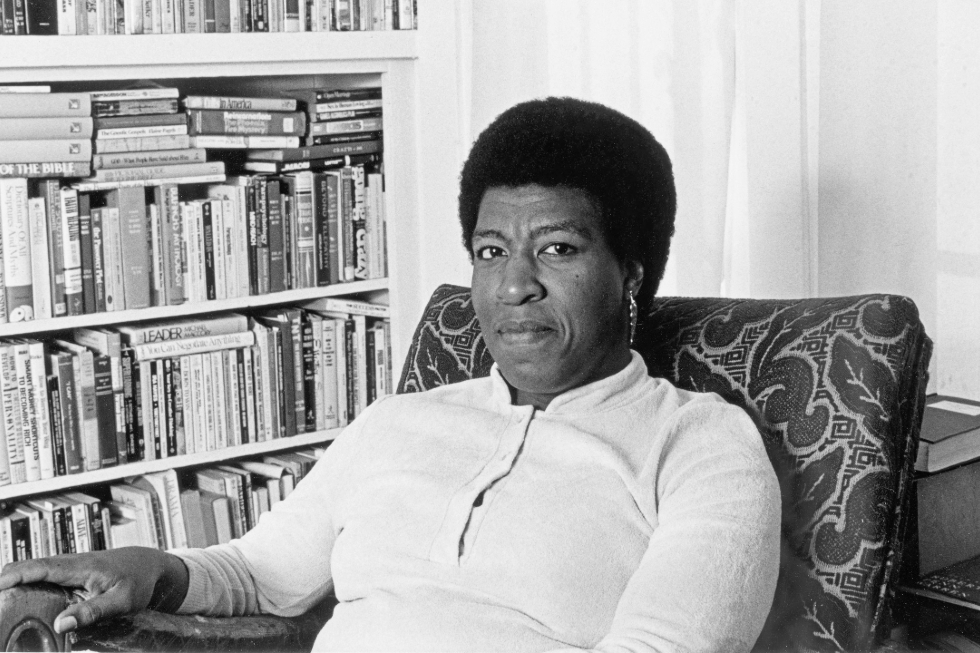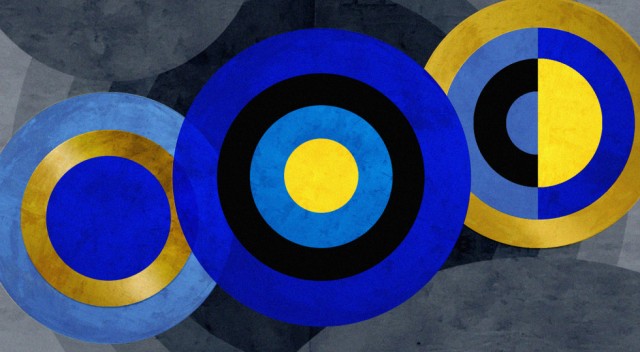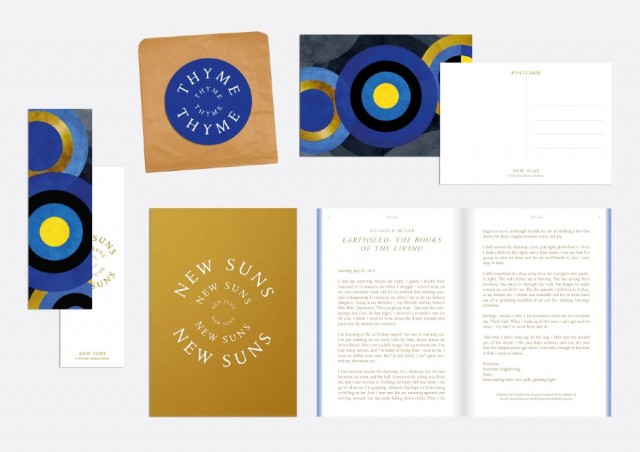New Suns: A Feminist Literary Festival – Reviewed

What can the writings of Octavia E. Butler tell us about today and, as it happens, tomorrow? Mike Pinnington reviews New Suns, the literary festival exploring the work and message of the visionary speculative fiction author…
“There’s nothing new under the sun, but there are new suns.”
To say we’re living in the time of trailblazing author Octavia E. Butler’s Parables series, I saw tweeted recently, is now so commonplace as to have lapsed into cliché. It wasn’t a dismissal of those extolling the idea. Rather, it was simply a casual acknowledgement that the world reflected in Butler’s Parables series – one of climate change, economic crises, a despotic presidential candidate who wants to ‘make America great again’ – had clearly, in a number of very real ways, come to pass.
It can’t have been entirely coincidental, given the 2020 Biden-Trump presidential face-off, that last September saw her book Parable of the Sower put Butler on the New York Times best-seller list for the first time – a mere fifty years after she’d sold her first story. In this country, it wasn’t until very recently that you could walk into a certain high street book shop and find Butler’s works on the shelf. This belated acclaim hasn’t prevented her writings – and world view – from seeping into wider culture; from the music videos of Beyoncé to the paintings, film and texts of visual artist Keith Piper.
The prophetic writings of Butler (who died in 2006, aged 58) have bequeathed readers and fellow creatives much. Her legacy has been celebrated and explored by the New Suns Feminist Literary Festival, held at the Barbican and conceived in 2017 – the year of Trump’s inauguration and #MeToo – by curator Sarah Shin. Responding to themes common in Butler’s body of work, ‘the power we have to both sustain and change the world around us’, last weekend marked the third iteration of the festival. Its first online outing, it included a film screening, panel discussions and workshops featuring an array of acclaimed writers, artists, and thinkers.
“A handful of earth, a handful of sky, and everything in between.”
Activists adrienne maree brown and Ama Josephine Budge kicked things off with keynote talk, The Parables of Octavia Butler, conducted from separate locations, complete with a bit of wonky internet. The talk was advertised as an exploration of Butler’s work, with particular reference to “The power and inevitability of change [in her] visionary stories, as well as the reimaginations of social relations across race, gender and class”. It had been a long week, maybe I was tired, but to my ears, it was somehow lacking in Butler – both contextually and content-wise. Amid talk of twenty first century concerns around pleasure and self-care, for those being introduced to Butler only recently, or perhaps for the first time, the learning curve might have felt on the steep side. There was a fine book recommendation in there though, for Lynell George’s a handful of earth, a handful of sky: the world of Octavia E. Butler (2020). Described as ‘a blueprint for a creative life’, it was on order shortly afterward.

“Every story I create, creates me. I write to create myself.”
Next morning brought with it one of my reasons for booking on to the weekend, What-if? A Speculative Science Fiction Writing Workshop with Season Butler, whose debut novel Cygnet won Best First Novel at The Writers’ Guild Awards last year. Butler, no relation (as far as I know), proved a generous and informative guide: “Allow your work to have an infancy”, as it can always be revised and refined, she reassured, warning against comparing your early efforts to other people’s published works.
Among generative writing exercises and prompts, Butler sprinkled relevant wisdom from her namesake: “Forget inspiration. Habit is more dependable. Habit will sustain you whether you’re inspired or not.” A good rule of thumb for any writer. Throughout there were references and asides about Butler’s life. One of my favourites was her awakening when watching 1954 British B movie The Devil Girl From Mars and realising that she, Octavia, could do better (much, much better in fact). The class, which was two hours’ long and included breakout sessions to share work and progress for those feeling brave, was a practical but gentle start to the day, and worth the weekend ticket price (£25) alone.
“The stars are free… I’d rather have the city lights back myself, the sooner the better. But we can afford the stars.”
If you’ve ever been to a festival of any kind, you’ll know that you’ll likely miss something that you’d intended to check out. In the case of New Suns, it was Saturday evening’s panel talk, Among the Stars, advertised as including a poetry reading with Precious Okoyomon, Dorothea Lasky and Izabella Scott. Fortunately, the anthology reader which I’d received in the post a few days prior to the festival included the poem The Wordless Ocean by Lasky. The lovingly produced pack (below), which included the reader, bookmark, postcard and a packet of thyme seeds (to sow alongside the weekend’s ideas for change), was a nice touch, providing a tangible link to the otherwise online programme. (More than once over the course of the weekend, I’d daydreamed about being part of an audience at the Barbican, my reader and drink in hand.)

“Repressive societies always seemed to understand the danger of ‘wrong’ ideas.”
Screening on demand for the weekend was Donna Haraway: Story Telling for Earthly Survival (dir. Fabrizio Terranova, 2016) about the philosopher best known for her essay A Cyborg Manifesto: Science, Technology, and Socialist-Feminism in the Late Twentieth Century. The film begins inauspiciously with a meandering anecdote about orthodonture, and how its ideals and aesthetics aren’t routed in human biology at all, but in the jaws of marble Greek gods. Much of the film plays out this way: Haraway’s to-camera reflections about her life, societal structures (and strictures), influences and thinking, that descend too easily into longwindedness. The wisdom is there (life lessons, too), but it’s often hard to pinpoint.
It suggests a director in thrall to their revered subject and one can’t help but feel a judicious edit would have allowed Haraway and her teachings to shine. Instead, there is indulgence – arguments regularly digress, giving way to tangents and further questions – an approach that serves to obfuscate rather than elucidate. It’s a shame because it means pertinent ideas, big and quotidian, never seem to take flight. Segues into dreamy archival footage (everything from what could be Haraway competing at a dog show with her beloved Australian shepherd, Cayenne Pepper, to shots of jellyfish floating by) and greenscreen trickery add something, but this, ultimately, merely serves to highlight the lack of clarity.
“Tell stories filled with facts. Make people touch and taste and know. Make people FEEL! FEEL! FEEL!”
No such lack of generosity to the audience was present in the weekend’s final event, a workshop on Journaling or Diary writing with the London Review of Books’ co-editor, Alice Spawls. In accessible, unshowy fashion, the talk, illustrated with Butler’s own writings, was an arm around the shoulder for writers of all stripes and experience. A handwritten list of “Essentials of Success”, for instance, with the words ‘motivation’, ‘self-discipline’ and ‘specific goals’ highlighted, conveyed Butler’s clear-minded direction of travel. “Butler”, said Spawls, “used her diaries to encourage herself… They are a record of will to become a writer.” Our host, scattering the talk with exercises on revisiting and revising memories, led us through various ways in which the act of journaling can be both useful and empowering.
Situating (via diarist and essayist Anaïs Nin) your journal as a “homely space”, Spawls emphasised it as somewhere to make the act of writing habitual rather than intimidating; to hear her trepidation when faced with the expanse of an empty page or word doc to fill chimed powerfully, and was reassuring for more than just this writer, I’m sure. A journal can, among other things, be a departure point for memories, thoughts and observations. More than a space for mere dilettante dabbling, it is a method of sharpening your senses, of facing discomfort or meeting yourself on the page, and honing a life-long writing practice.
“The one thing that I and my main characters never do when contemplating the future is give up on hope.”
The weekend left me energised; not just by Butler and her message, but also in the simple act of hearing others relate their thinking on writing as a creative practice – the challenges and struggles, of course, but also the joy. Writing is a balm (mostly). And so is reading, which is why it was greatly appreciated to find a complementary New Suns reading list hosted by Bookshop.org. This simple but thoughtful piece of the festival points to its careful and coherent programming overall and, one hopes, will introduce new readers to the many worlds of Octavia E Butler and her heirs.
Mike Pinnington
Mike saw the New Suns festival online and broadcast by the Barbican, London, —
Quotes in bold from the worlds and imaginings of Octavia E. Butler
Images: Octavia E. Butler Photograph by Patti Perret; festival artwork by Cecilia Serafini





